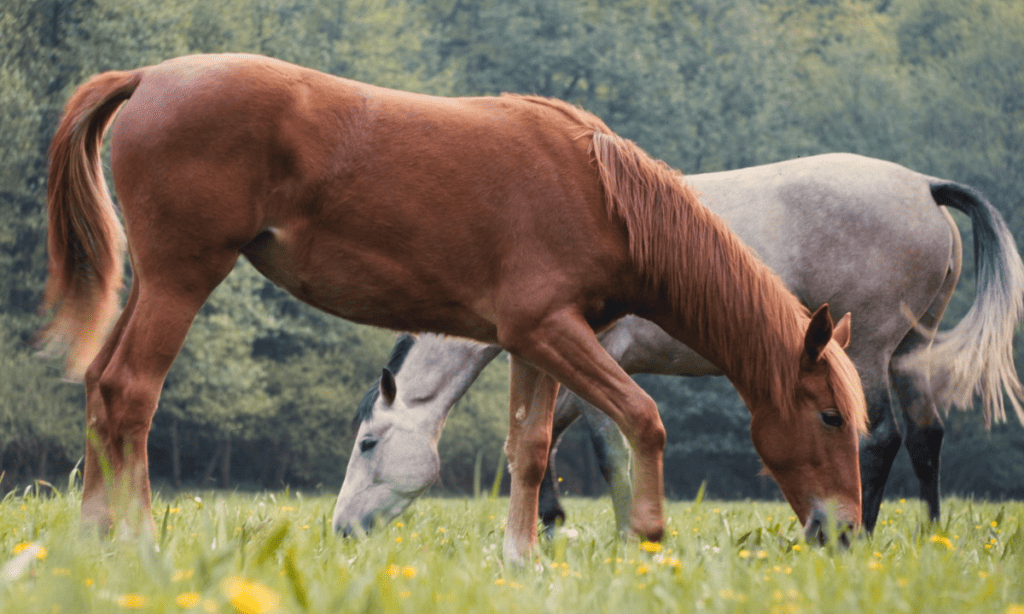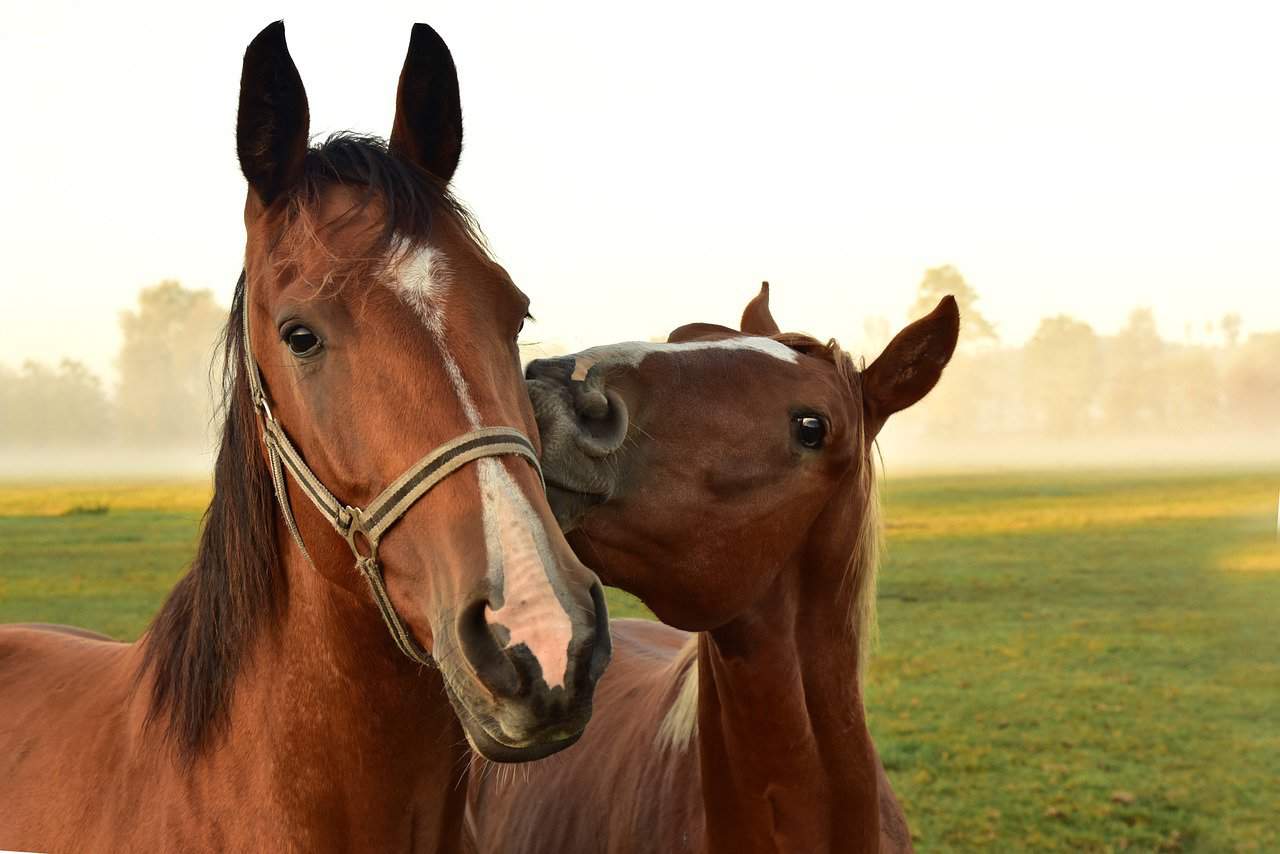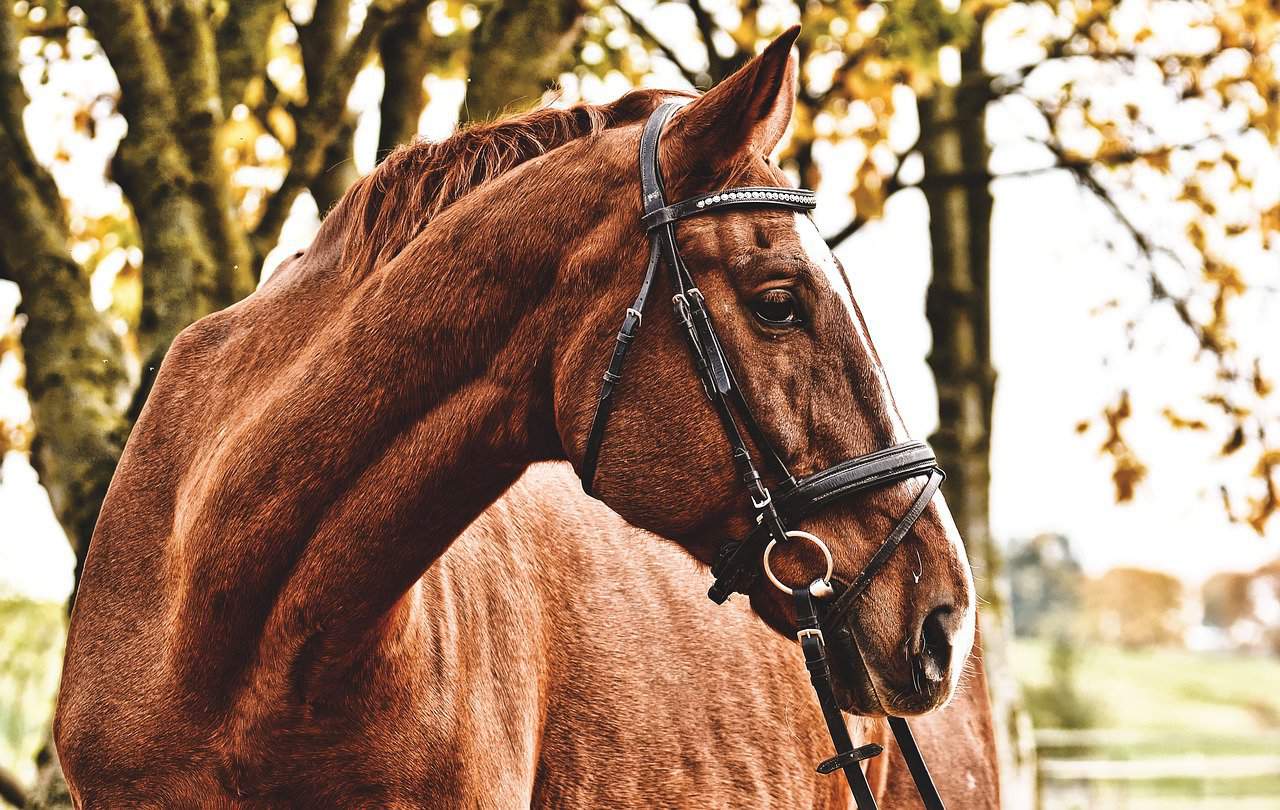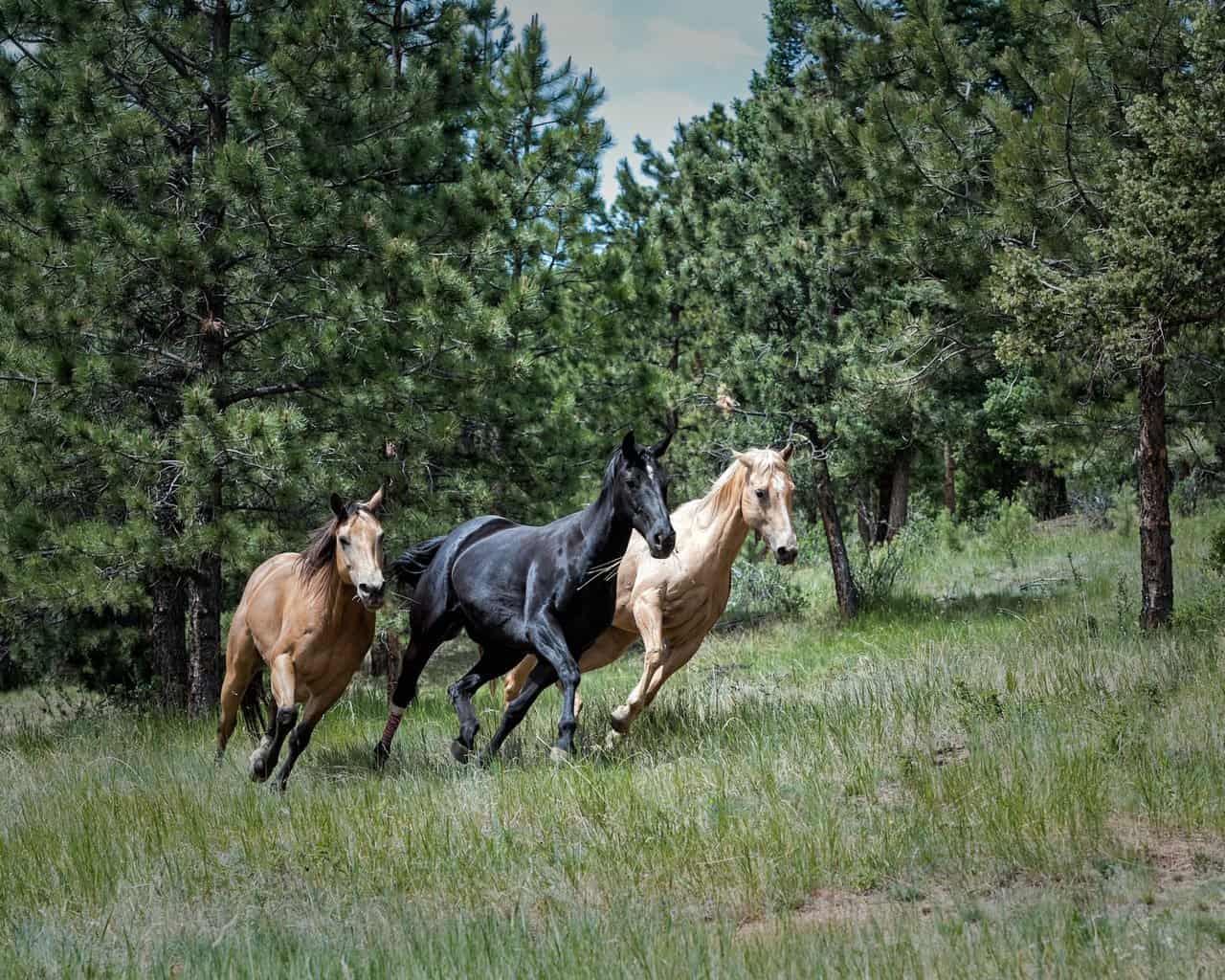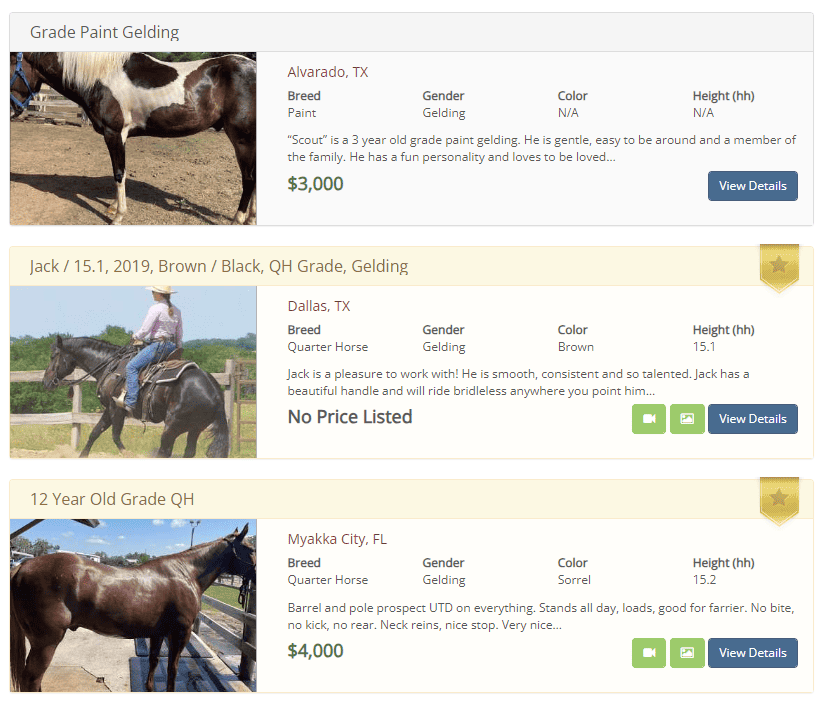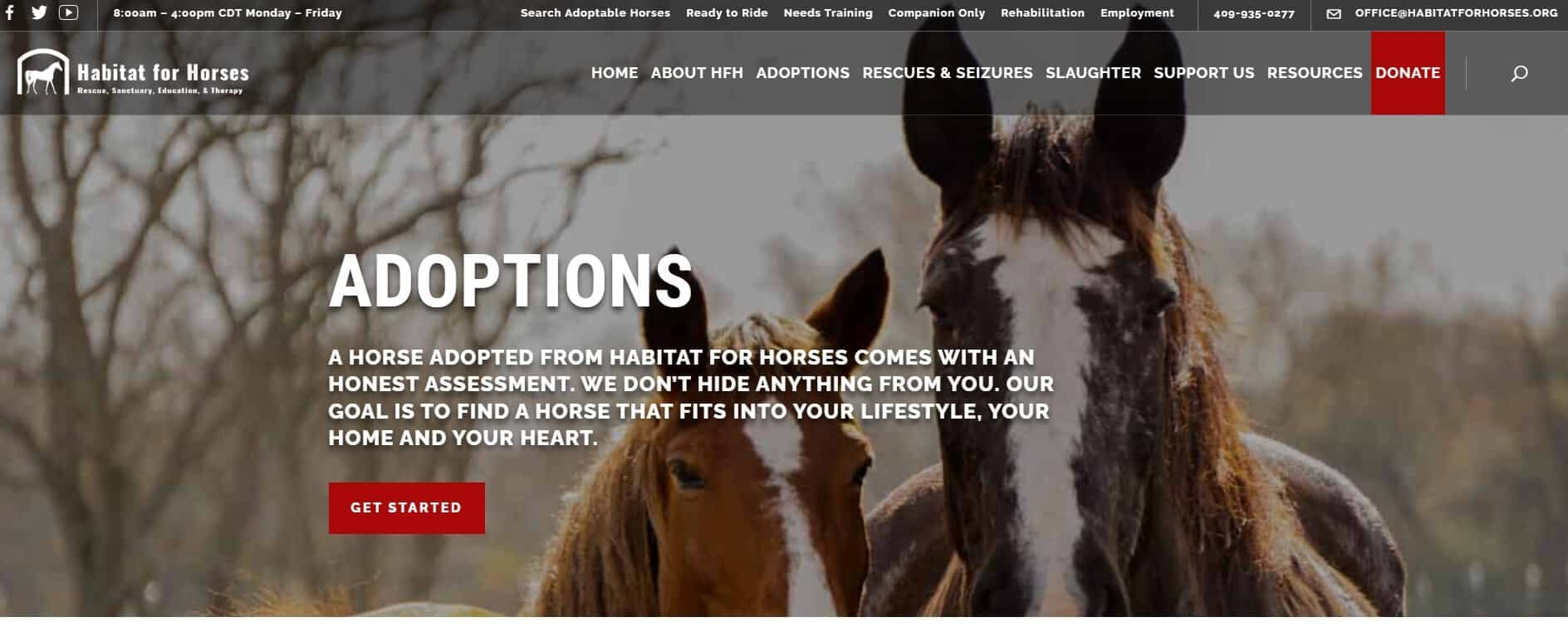- How Much Does a Bale of Hay Cost - August 15, 2023
- What is a Grade Horse: A Comprehensive Guide on Unknown Creatures of the Equestrian World - August 1, 2023
- Best Barrell Saddles - July 31, 2023
“Within the realm of grade horses lies a tapestry of untold tales.”
During the first riding lesson, I am sure that the only question piquing curiosity in the rider’s heart is about the breed of his horse. And even after realizing that it’s a long way to ride a pureblood, most beginners still don’t care to know what is a grade horse after all.
So, for those interested in getting to know grade horses better, allow me to help you explore the captivating world of these equines that defy simple classification.
In this guide, I will try to explain everything I know about grade horses while shedding light on their distinctive characteristics and classifications. Moreover, as we navigate further, I will explore the advantages and downsides of owning a grade horse and discuss its adaptability and versatility in various disciplines.
So, if you want to appreciate these majestic yet unknown creatures, follow me on this guide. And I am confident that you might change your viewpoint after reaching the end of this guide.
Bottom Lines Up Front
“Grade” is a classification given to horses free from the constraints of documented pedigrees or registration papers.
But despite the absence of specific breed affiliations, Grade Horses excel in various disciplines, from agriculture and ranch work to recreational riding and competitive endeavors. They are also cheaper than other registered pure and crossbreeds. Also, buying them is much easier as they don’t require you to complete the registration process.
Grade Horses: Overview and Classifications
Grade Horses, a term often used to encompass unregistered or mixed-breed equines, present a fascinating universe that delves far beyond the surface.
While many consider all grade horses to be the same, they can be classified into a lot of different groups. But if I talk about myself, I have observed at least three classifications of grade horses, each with its own unique characteristics and qualities.
Horses Never Registered
This first classification of grade horses comprises horses that have never been registered with any breed association. These horses, often called “unregistered,” lack documented pedigrees and official registration papers. However, there are multiple reasons behind their non-registration.
- Exhausting Time for Registration
One common reason prevalent in horses falling into this category is that they may have missed the registration age window. And for those who don’t know about registration, it typically occurs within a specific timeframe after a horse’s birth, which usually lasts upto a year. But if this deadline is missed, the opportunity for registration may be lost, and despite being pureblood, their lineage could not be recorded.
- Unknown/Unregistered Parentage
Another contributing factor to non-registration is the absence of information regarding the horse’s dam (mother) or sire (father), which is one of the essential requirements of many registries. After all, if the mare or stallion is unknown, it becomes challenging to document the horse’s pedigree accurately.
- Undocumented Changes in Ownership
Circumstances such as frequent changes in ownership or insufficient record-keeping can also lead to horses remaining unregistered. Not all buyers keep records of their purchases, and this missing ownership link leaves the horse’s lineage and genetic background shrouded in uncertainty.
Horses with Lost Registration Papers
The second classification of Grade Horses includes those horses who were once registered but no longer have proof of their registration. And before you say anything, let me tell you that getting a copy of your horse’s registration documents is much more challenging than obtaining your car’s lost papers.
Like their unregistered counterparts, the pedigree of these horses cannot be ascertained with certainty, especially if they don’t have any microchips.
Although this loss or damage to the papers usually occurs inadvertently, there are situations when the owners do not intentionally provide the registration documents while selling the horse. This mainly happens when the buyer does not make payment on time or when the owner wants to sell a similar horse using tha same papers.
Be that as it may, despite their previous registration, these horses end up falling into the category of grade horses, especially when you don’t know the horse’s official name, its parentage, and the breeder.
Horses That Don’t Conform to Any One Specific Breed
The third classification of Grade Horses encompasses those horses which display mixed-breed characteristics and defy the strict standards of any particular breed.
But if you ask me, within this category, these horses – often known as “grade mutts” or “grade crosses” – unveil a captivating blend of diverse lineage, resulting in an extraordinary range of possible traits.
Among the remarkable attributes of these Grade Horses, their mild temperaments stand out while also striking a balance between ease of handling and liveliness. Moreover, their heights typically fall within the average range across most breeds – about 14-15 hands – avoiding the extremes associated with draft horses, Thoroughbreds, or ponies.
Unlike the previous two classifications, which may still have a slim chance of making it to the registry, the mixed-breed grade horses, in my view, genuinely deserve the title of Grade, as they have zero chance of getting registered. This holds true not only for these horses themselves but also for their offspring.
Contrasting Traits: Grade Horses vs. Purebred and Crossbred Horses
Now that you have an idea about the classification of grade horses, the following comparison of these horses with their purebred and crossbred counterparts will give you a good headstart on what to expect from each category.
Noted Lineage
One of the most notable distinctions lies in their lineage and pedigree. Purebred and crossbred horses boast well-documented ancestries that can be traced back to several generations, which are maintained by breed associations to ensure the preservation of breeding standards. In contrast, Grade Horses lack documented pedigrees altogether.
Predictable Traits
The predictability of traits is another aspect that sets these horses apart. Purebred horses are bred for specific characteristics that have been established within their respective breeds.
Through generations of selective breeding, these traits, such as conformation, temperament, and athleticism, become relatively predictable. Similarly, crossbred horses inherit a combination of traits from their parent breeds.
On the other hand, Grade Horses offer a wide range of possible traits due to their unspecified backgrounds. Their individual characteristics are unpredictable, and you cannot even know what their offspring will bring to the table, or should I say stable.
Breeding Standards
Breed standards and conformation also differentiate these horses. Purebred horses adhere to strict breed standards defining their conformation, such as size, gait, color of coat, etc. Not to mention, these standards are carefully maintained by breed associations to ensure uniformity.
Crossbred horses, on the other hand, do not usually have strict breeding criteria. However, while breeding crossbreds like part-bred or half-bred, the breeders still adhere to some standards; after all, many warmblood horses and breeds like Anglo-Arab and Desert Norman are a result of mixed breeding. But, in the case of grade horses, no specific breeding standard is followed at all.
Downsides of Owning a Grade Horse
Limited Participation in Equestrian Events
While grade horses enthrall aspiring equestrians with their diverse traits, they may encounter limitations when it comes to breed-specific competitions.
Even otherwise, though there are some open competitions, these horses are not found to perform well in those such competitions at a professional level; after all, a grade horse can never compete with a Trakehner or Freisian in dressage. Therefore, having a grade horse would not be great for riders seeking recognition in professional equestrian events.
The Enigma of Age
Contrary to pureblood horses with documented pedigrees, the true age of a Grade Horse may remain uncertain. Some unscrupulous sellers potentially fake the real age of a grade horse, which might deceive a newbie into buying an old horse, especially if they are not accompanied by a trainer or an equestrian expert.
Genetic Riddles
With no available record of grade horses, the biggest problem, in my opinion, you might run into relates to genetic diseases. You can never tell what genetic problem your horse might develop. And if I am being honest, I have often seen well-trained grade horses getting wasted due to an unanticipated genetic disorder.
Benefits of Owning a Grade Horse
Much More Affordable
The best thing about owning a Grade Horse is that it grants us access to a world of equestrian enchantment without breaking the bank.
Compared to their purebred counterparts, Grade Horses often boast a more budget-friendly price tag. And this financial advantage allows us to channel resources into providing top-notch care, premium feed, and state-of-the-art enclosure, elevating the overall well-being of our treasured equine companions.
Ease of Care and Management
These enchanting creatures tend to be more adaptable and amiable, striking a harmonious balance between not being too sensitive or too stubborn.
Their amenable nature allows equestrians to establish a genuine connection, fostering an atmosphere of trust and learning. With their willingness to listen and learn, training and handling become a fulfilling and enjoyable journey for both horse and rider.
Versatility
Unlike purebred or half-bred horses, which are attuned to specific chores, the grade horses open doors to versatility in equestrian pursuits. From show jumping to trail riding and mounted games, these horses can be considered the jack of all trades.
Buying a Grade Horse
By now, I hope you’re well versed with a Grade Horse and all its categories, and now you would be wondering how you could buy one for yourself.
Where to Find Grade Horses
Several avenues offer promising possibilities when it comes to finding a Grade Horse. Local horse auctions, online horse marketplaces, and reputable horse rescues are excellent places to start your search. I would also recommend connecting with fellow horse enthusiasts, as they can help you find hidden gems waiting to be discovered.
How Much Do They Cost
As you delve into the world of Grade Horses, you’ll find that their prices vary to a great extent, depending upon age, training level, temperament, and overall health of the horse. Still, fortunately, compared to their purebred counterparts, they do come at a lower price tag, usually anywhere from $1000 to $4000.
Things to Consider before Buying a Grade Horse
Before finalizing your decision, I would suggest taking the following steps to ensure a good buying experience:
- Conduct thorough research about the horse’s background, including its health history, past training, and any potential behavioral issues. If possible, arrange a visit to the horse’s current living environment to assess its temperament and behavior firsthand.
- Seek the advice of a trusted veterinarian and an experienced horse trainer before you buy a grade horse. Their insights can provide valuable guidance in evaluating the horse’s overall health and training progress.
- If the seller allows, take a genetic test of the horse to ensure it has no serious health concerns.
Some Famous Grade Horses
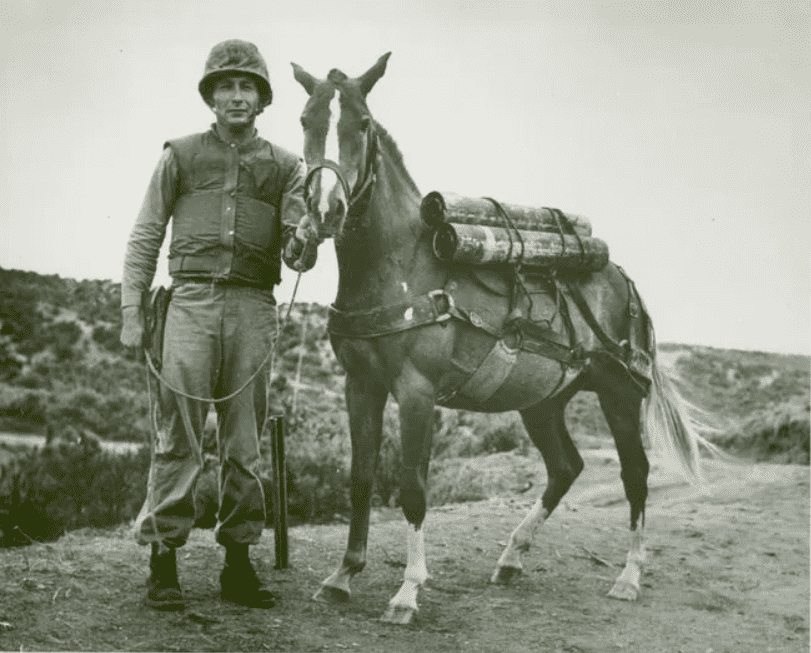
While Grade Horses may not boast the same glamorous pedigrees as their purebred counterparts, they have also etched their names into equestrian history, capturing the hearts of riders and the public alike. A few of these remarkable horses include:
- Sergeant Reckless: A brave and tenacious packhorse in the Korean War, who, despite lacking a pedigree, did not let herself from delivering vital supplies, carrying loads of ammunition, and evacuating wounded soldiers from the battlefield.
- Comanche: This sole survivor of the Battle of the Little Bighorn embodies the bravery and fortitude of this grade horse. Despite his uncertain bloodline, this mixed-breed horse survived several gunshot and arrow wounds and became the only witness of the deadly battle.
- Snowman: From the brink of obscurity to the heights of show jumping glory, Snowman’s journey as a grade horse inspires awe. Moreover, it also holds the title of the first grade horse to win the Open Jumper Championship twice.
FAQs
Answer: Buying a grade horse depends entirely on your preferences, goals, and circumstances. As a rule of thumb, grade horses can be a suitable choice for those seeking versatility.
They can also be appealing to budget-conscious individuals due to their affordability and are one of the best choices for aspiring and newbie equestrians for their amiable nature. Not to mention, non-competitive riders who prioritize bonding and enjoyment may appreciate the unique personality of grade horses as well.
On the other hand, a grade horse would not be a good choice for equestrians looking for breed-specific competitions and those training for professional events.
Answer: In most cases, Grade Horses aren’t eligible for registration, especially if your horse doesn’t follow the breeding standards of any one breed. However, some exceptions do exist depending on your grade horse category.
If your horse was registered at some point but lost its registration papers, then you can request a duplicate copy or replacement papers by contacting the proper association. However, getting these registration documents would require proof of ownership and the history of your horse’s parentage.
Answer: In most of the professional horse events, especially in breed-specific show events requiring registration and adherence to specific breed standards, grade horses do not compete.
However, these horses can still participate in other competitive events like open shows, crossbreed competitions, or show jumping, particularly at the local county level. However, it’s always recommended to consult the rules and regulations of each specific event or competition to determine the eligibility criteria for grade horses.
What Is a Grade Horse – Final Thoughts
Grade horses are categorized as horses without documented pedigrees, missing registration papers, or possessing characteristics that do not fall in line with specific breeding standards, which bestows upon them an air of mystery.
While Grade Horses may not fit within the confines of breed-specific competitions or showcase a particular lineage, they can still shine brightly in open shows, crossbred events, and countless other arenas at a local level.
Nevertheless, as we conclude this guide, I just want to add that these horses should never be perceived as some lower species within the equine world. Though they have limitations and might not perform well at a professional level, they make good for training horses for their calm temper, friendly nature, and affordable price.
So, let us break free from conventional beliefs and embrace the beauty and practicality these grade horses offer; after all, if it wasn’t for these unsung horses, many big names might not have made it to the equestrian world.

